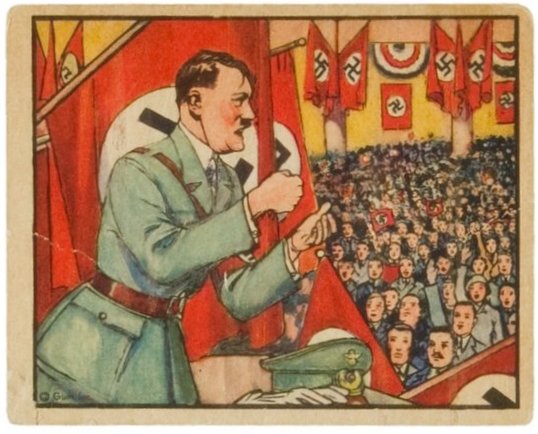
By Jim O’Neal
The same winter President Roosevelt came to power in the United States, another leader in Europe assumed his country’s highest office. Over the next 12 years, until their deaths just two weeks apart in 1945, the lives of Franklin Delano Roosevelt and Adolf Hitler would grow increasingly intertwined … drawn together as archenemies in a conflict that was the 20th century’s most grotesque and widespread event.
Even all these years later, the rise of Hitler still baffles. His seduction of the German people was so sudden and complete, his assumption of power so total, that he defies comparison with history’s other evil conquerors. One German philosopher called him an “error” in history, as if the Fates had been distracted while a deadly mutant virus took hold.
Both FDR and Hitler’s journey to power was propelled by a world economic collapse.
Along with America and most of Europe, Germany suffered a Great Depression, with unemployment reaching 25 percent. If it had been hunger alone, the people may have followed a very different kind of leader. But Hitler’s enormous popularity was also a product of Germany’s lingering desire for revenge.
Despite Germany’s surrender in 1918 (an armistice arranged by the Reichstag, not the Army), few accepted the fact that they had been defeated in World War I. Hitler was from Bavaria, a haven for right-wing nationalists, and he railed against the forces of Judaism and Bolshevism, while mocking the fragile Weimar government as “November Criminals” for acceptance of the armistice.
After the complete breakdown of the economy in 1930, the passion of resentment and revenge gained momentum to include students, professors and businessmen. Hitler’s anti-Semitic message resonated with a deep suspicion of money cartels and the perceived unjust punishment from the Versailles agreement. The campaign moved with the speed of a plague.
The Nazi bible was Mein Kampf, a two-volume treatise started by Hitler while in prison for the 1923 Beer Hall Putsch, a bungled attempt to control Bavaria. As the movement gained in favor, Mein Kampf (My Struggle) became a best-seller and provided Hitler with a cloak of legitimacy. Still, it was Hitler’s voice, not his pen, that fueled the emotional appeal of the Nazi movement. In a brilliant insight, he grasped that the pain of the German people could be harnessed in a unique way. They had been victimized by the depression, humiliated by Versailles, robbed by chronic inflation and their spirit had devolved into despair, fear and resentment.
Hitler’s extraordinary oratory provided a powerful reassurance that they were a great people, their suffering unjust and he promised an improved life while those who were responsible for their pain would be punished. His two-hour speeches could hold a crowd of half-a-million people spellbound. It mattered not what he said, but how he said it. They were thrilled by the pageantry, the sense of historical inevitability and blind faith that Germany would rise again. It was only a short journey from here to another war of conflagration with even greater magnitude than the last.
The people were eager to get it started and so it came.
 Intelligent Collector blogger JIM O’NEAL is an avid collector and history buff. He is president and CEO of Frito-Lay International [retired] and earlier served as chairman and CEO of PepsiCo Restaurants International [KFC Pizza Hut and Taco Bell].
Intelligent Collector blogger JIM O’NEAL is an avid collector and history buff. He is president and CEO of Frito-Lay International [retired] and earlier served as chairman and CEO of PepsiCo Restaurants International [KFC Pizza Hut and Taco Bell].
